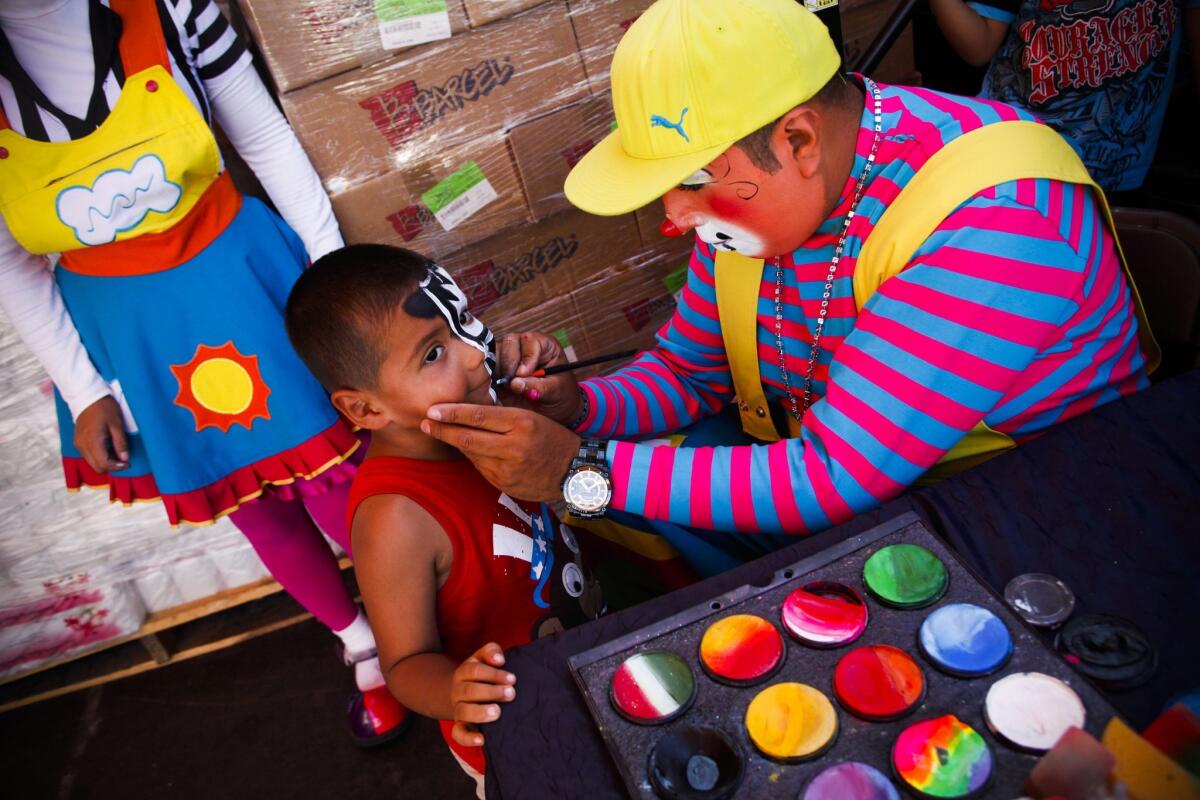Clowns heading for extinction? Not quite

- Share via
Reports of the demise of clowns in America might be as exaggerated as the expressions on their brightly painted faces and the oversized shoes on their feet.
“There is no shortage,” said World Clown Assn. Vice President Bob Neil, emphasizing each word. “If there were fewer clowns, I’d be a rich man.”
On Wednesday, a story from the Daily News in New York declared the advent of a national clown shortage as those seemingly ageless faces under all the makeup start to wrinkle. Clowning is an aging art.
The story cites a significant decrease in membership at the country’s biggest clown organizations including at Neil’s World Clown Assn., the country’s largest trade group for clowns.
“Yes, the numbers are down,” Neil said, “but look at other clubs,” pointing to memberships in other non-clowning trade organizations. He blames the economy.
“What’s happening is attrition,” Glen Kohlberger, Clowns of America International president told the Daily News, noting that membership at the Florida-based organization has plummeted since 2006. “The older clowns are passing away.”
Wait, says one clown in Jacksonville, Fla., we’re not dead yet.
“Clowns are still alive and well,” said Chris Wyatt, a full-time police officer and part-time clown who serves as education director for the South East Clown Assn. “I’m still here.”
The 55-year-old got into the game 10 years ago, reluctantly sporting a red nose to sell a few more balloons at the flea market. That plastic nose alone doubled his profit and led to the birth of Mr. C and the discovery of his balloon sculpting talents. “I’m a clown with or without my makeup.”
Still, he said, members of the South East Clown Assn. were just discussing not seeing many new members join. “The age we’re in now, it’s not as prevalent,” Wyatt said of clowning.
Those who do it say being a successful clown requires you to be one deep down, but it doesn’t require certification or training, for that matter.
Indeed, you don’t need to be a member of a trade group to be a member of the greater clowning community, Neil told The Times from Des Plaines, Ill. “I know hundreds of Ringling Brothers clowns. Not one of them belongs to an association.”
Sure, clowns may be getting older, but the clowning hasn’t gotten old for Wyatt. As he retires later this year, he’s trading in his officer’s uniform to don the nose, makeup and bow tie of Mr. C full-time. “It’s a rewarding business,” he said.
To compensate for the intersection of a youthful, growing business and an aging body, Mr. C has added a couple of trackless trains to his arsenal of balloon sculpting, magic and puppetry.
Wyatt and Neil, who are both cops turned clowns, concede that it can be a challenging enterprise. “This is a tough business to make a living at ... like any performing arts,” Neil said. But “the opportunities are there.”
More to Read
Sign up for Essential California
The most important California stories and recommendations in your inbox every morning.
You may occasionally receive promotional content from the Los Angeles Times.











